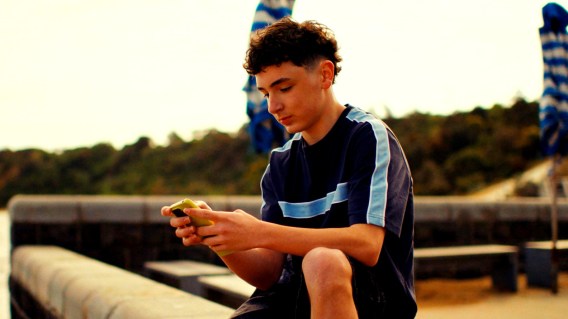‘For the good of the kids’: Gov launches age ban campaign

A still from the 'For the good of' campaign
The Australian government has released a new campaign to help prepare parents and children for the impending ban on social media accounts for under-16s.
The “For the good of” video and audio campaign will first air on Sunday night, although the Minister for Communications has yet to respond on which channels it will use.
The video campaign depicts several children with their smartphones while a voiceover says: “For the good of Kirsty, for the good of Lucy and Anya, for the good of Sam, for the good of Holly, for the good of Noah, for the good of their wellbeing.
“From December 10, people under the age of 16 will no longer have access to social media accounts. It’s part of a new law to keep under-16s safer online.”
The video ends with a call to visit eSafety.gov.au for further information and resources.
“This important education campaign will make a meaningful difference to help prepare Australian parents and their children for the Albanese Government’s world first social media age laws,” Minister for Communications Anika Wells said in a statement.
“I want Australian parents and families to know the government has your back.”
Enjoying Mumbrella? Sign up for our free daily newsletter.
Mumbrella understands the campaign was developed and overseen by TBWA and Universal McCann, both of which have ongoing contracts with the Department of Infrastructure, Transport, Regional Development, Communications, Sport and the Arts worth $7 million and $1.1 million respectively.
The two agencies – which will soon sit under the same umbrella following the merger of IPG and Omnicom – both worked on the department’s $3.2-million Online Safety campaign, which ran last year.
The campaign announcement comes as Minister Wells meets privately with social media platforms, in which she is expected to warn the companies that “there is no excuse not to be ready”, according to an announcement from her office.
Yesterday Google, alongside Microsoft, appeared before the Senate Environment and Communications References Committee.
During the forum, Youtube’s Rachel Lord reiterated the tech giant’s stance that the legislation will be “extremely difficult to enforce” and “does not fulfil its promise of making kids safer online”.
Youtube is owned by Google, and until July was hopeful of being exempted from the under-16s ban.
While Google, Youtube and Microsoft appeared, Meta, Snapchat and Tiktok ignored a request from the committee to appear, a refusal which had Greens Senator Sarah Hansen-Young calling for them to be forced to give testimony.


For the good of everyone, this campaign should not go ahead. Digital ID is the point of no return.
Always hear that social media causes problems, but the only things that I can get from this, is mostly bad parenting. One article I read today was that social media causes reduction in intelligence but it didn’t explain why, just said it did with little evidence to back it up. I also think that the communications minister couldn’t explain to anyone how the internet actually works. If you do fight for this censorship, then you should also carefully watch what your child is taught at schools, ensure they’re getting a good education and not one based on bias.
Whilst I understand the concerns around censorship, Meta in particular has shown a complete indifference to the harmful content on its platforms and the damage it has caused to kids. We are not lacking for data to prove that.
The ease with which Instagram was able to make changes this week demonstrated that it was always easily within their capability, there was just no political will.
In a question of whether I trust the Government or Meta to do better for our children, I side with the Government.